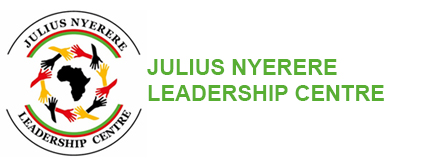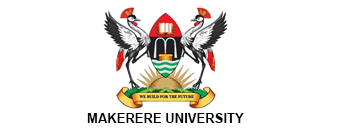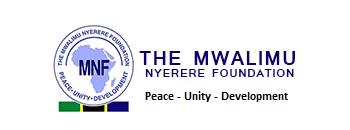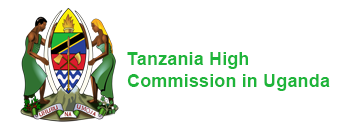1. BIOGRAPHY
• BIRTH
Mwalimu Julius Kambarage Nyerere is a giant of the African independence struggle and one of Africa’s most respected politicians.
Mwalimu Julius Kambarage Nyerere was born on April 13, 1922 in Butiama, on the Eastern shore of Lake Victoria in Northwest Tanganyika. His village about 40 kilometers east of Musoma town, a port on the shores of Lake Victoria in Mara region. His father was the chief of the small Zanaki tribe.
• EDUCATION
1933 – 1936: Primary Education
His early education was at Mwisenge Primary School in Musoma Dictrict, Mara region. He was 12 years of age to begin schooling at Government Primary School at Mwisenge. After 3 years he completed the four year course and went to Tabora Government Secondary School.
1937–1942:SecondaryEducation
He joined Tabora Government Secondary School, a town in the heart of Tanganyika, until he passed the Standard Ten Examination. He was also a Senior School House Prefect and a member of School’s Boy Scouts Troop.
1943–1945:HigherEducation
He went to Makerere College in Uganda (at that time the only tertiary education institution in East Africa) where he obtained a Teacher’s Diploma and then returned to Tabora at St. Mary’s School (currently known as Mirambo Secondary School) teaching Biology and English.
1949–1952:HigherEducation
His intelligence was quickly recognized by the Roman Catholic fathers who taught him. He went on, with their help, to train as a teacher at Makerere University in Kampala (Uganda). On gaining his Certificate, he taught for three years (1946 – 1949), and then went on a government scholarship to study history and political economy for his Master of Arts at the University of Edinburgh (he was the first Tanzanian to study at a British University and only the second to gain a University degree outside Africa) in 1952. In Edinburgh, partly through his encounter with Fabian thinking, Nyerere began to develop his particular vision of connecting socialism with African communal living.
• EMPLOYMENT
1946 – 1949: Teaching at St. Mary’s Secondary School Tabora
Nyerere was employed as a teacher at St. Mary’s Secondary School at Tabora (teaching Biology and English).While teaching at St. Mary’s Tabora, he helped in establishing a co-operative shop in Tabora Town in order to fight exploitation. He also accepted to serve as a branch secretary of the Tabora branch of the Tanganyika African Association (TAA: established in 1929 as a social organisation for Africans).
1953 – 1955: Teaching at St. Francis Secondary School at Pugu near Dar es Salaam
On return from Edinburgh to what was then the Trust Territory of Tanganyika, Nyerere resumed teaching at St. Francis Secondary School, Pugu near Dar es Salaam. He taught History, English and Kiswahili. Besides teaching, he was actively involved in political and community activities outside school. He served briefly as a Temporary Nominated Member of the Tanganyika Legislative Council.
In July 1954 Nyerere became a founder member of the Tanganyika African National Union (TANU), and was elected President of this nationalist party. Faced with the choice of teaching or politics in 1955, he chose the latter. He accepted a further nomination at the legislature in July 1957 but resigned in protest in December of that year.
• POLITICAL ACTIVITIES
On his return to Tanganyika from the University of Edinburgh, Nyerere was forced by the colonial authorities to make a choice between his political activities and his teaching. He was reported as saying that he was a schoolmaster by choice and a politician by accident. Working to bring a number of different nationalist factions into one grouping he achieved this in 1954 with the formation of TANU (the Tanganyika African National Union). He became President of the Union (a post he held until 1977), entered the Legislative Council in 1958 and became chief minister in 1960. A year later Tanganyika was granted internal self-government and Nyerere became premier. Full independence came in December 1961 and he was elected President in 1962.
Nyerere’s integrity, ability as a political orator and organizer, and readiness to work with different groupings was a significant factor in independence being achieved without bloodshed. In this he was helped by the co-operative attitude of the last British governor — Sir Richard Turnbull. In 1964, following a coup in Zanzibar (and an attempted coup in Tanganyika itself) Nyerere negotiated with the new leaders in Zanzibar and agreed to absorb them into the union government. The result was the creation of the Republic of Tanzania.
A committed Pan-Africanist, Nyerere provided a home for a number of African liberation movements including the African National Congress (ANC) and the Pan African Congress (PAC) of South Africa, Frelimo when seeking to overthrow Portuguese rule in Mozambique, Zanla (and Robert Mugabe) in their struggle to unseat the white regime in Southern Rhodesia (now Zimbabwe). Nyerere also opposed the brutal regime of Idi Amin in Uganda. Among the many political activities he engaged include the following;
1949: Voluntary Provincial Secretary of Tanganyika African Association (TAA) in Tabora (Honorary)
1953: Member of the Tanganyika Legislative Council
He served briefly as a Temporary Nominated Member of the Tanganyika Legislative Council.
1953: President of Tanganyika African Association (TAA)
Nyerere was elected President of the Tanganyika African Association (TAA).
1954: Founder Member and First Elected President of Tanganyika Africa National Union (TANU)
in July 1954 he became a founder member of Tanganyika African National Union (TANU) and was elected the first President of TANU, the Nationalist Party, which energized the campaign, and mobilized the people of Tanganyika to demand their independence.
2. NYERERE DAY
October 14th of every year is celebrated in Tanzania as a public holiday in remembrance of the day Mwalimu Julius Kambarage Nyerere passed away. The day is the extinguishing of the Uhuru Torch which is the symbol of Tanzania independence and national unity. Also the Nyerere memorial day is a reminder to Tanzanians about the words stated by Mwalimu Julius Kambarage Nyerere about the meaning of Tanganyika as a free country:
“…. I have said before elsewhere that we, the people of Tanganyika would like to light a candle and put it on top of Mount Kilimanjaro which would shine beyond our borders giving hope where there was despair, love where there was hate, and dignity where before there was only humiliation….” 22nd October, 1959. Hansard, 35th Session Address in Reply.
3. PUBLICATIONS
• Publications –on Mwalimu
• Publications- by Mwalimu






